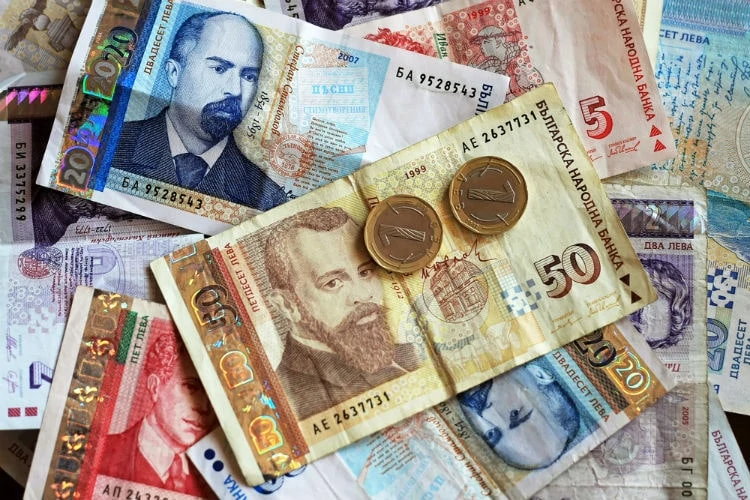Bulgaria is second in Europe after Romania in the number of cash payments, according to statistics from ‘Global Findex’. In our country, 63% of transactions are made with cash, and in our neighbor – over 78%. Although the pandemic was expected to increase the digitalization of money and minimize physical cash and its applicability, data show that consumers in Europe still prefer cash payments.
European countries in which cash transactions are predominant are:
1. Romania
- Cash transactions: 78%;
- Percentage of the population without a bank account: 42%;
- Number of ATMs per 100,000 population: 64
2. Bulgaria
- Cash transactions: 63%;
- Percentage of the population without a bank account: 28%;
- Number of ATMs per 100,000 population: 94
3. The Czech Republic
- Cash transactions: 44%;
- Percentage of the population without a bank account: 19%;
- Number of ATMs per 100,000 population: 58
4. Ukraine
- Cash transactions: 60%;
- Percentage of the population without a bank account: 37%;
- Number of ATMs per 100,000 population: 96
5. Hungary
- Cash transactions: 45%;
- Percentage of the population without a bank account: 25%;
- Number of ATMs per 100,000 population: 61
6. Slovakia
- Cash transactions: 41%;
- Percentage of the population without a bank account: 16%;
- Number of ATMs per 100,000 population: 62
7. Greece
- Cash transactions: 29%;
- Percentage of the population without a bank account: 15%;
- Number of ATMs per 100,000 population: 63
With over 70% and 63% of the total number of cash transactions, Romania and Bulgaria are the countries with the highest need for physical money in Europe. Also, 42% of the population of Romania and 28% of the population of Bulgaria do not have a bank account – this is indicative of the dependence of local consumers on physical banknotes and coins.
Other European countries are on the other financial pole, such as Norway, where only 3% of transactions are made in cash. Also, this country has an impressively low number of ATMs – only 32 per 100,000 population, but still 100% of adults in the country have a bank account.
“In Bulgaria, and in Europe, there is a strong attachment of consumers to money and cash payments. Our expectations are that cash will survive the digital revolution and that people will continue to use it for many years to come as their preferred payment method,” said Kalina Stoykin, Regional Manager of Euronet in Bulgaria, one of the largest payment companies in the world.
Euronet recently launched a large-scale campaign in Bulgaria, aimed at creating quick and easy access to cash in remote areas in Bulgaria. The ATM for the Community initiative is designed specifically for municipalities that want to offer cash withdrawals to their residents. More information about the project can be found here.
Why are cash payments preferred?
1. Cash payment is satisfactory
A study conducted by Prof. Avni M. Shah shows that paying in cash is a way to add positive emotion to transactions, which promotes cost satisfaction.
2. Cash makes us sensible buyers
Using cash helps to avoid impulsive purchases. A study of consumer psychology conducted among thousands of households shows that people who pay in cash spend less and have a larger share of health products in their basket.
3. Cash brings security
ATMs are a technique and as such can break down or run out of cash. At such times, the availability of physical cash will ensure trouble-free shopping.
4. Cache helps with budgeting
Paying in cash helps to avoid overspending while shopping. Carrying a certain amount acts as a brake for consumers to spend extra when their wallet is empty.
**https://merchantmachine.co.uk/most-reliant-on-cash/
***https://www.ecb.europa.eu/pub/pdf/scpops/ecb.op201.en.pdf
About Euronet
Euronet Worldwide is a leading global provider of financial solutions and payment services. Founded in 1994, the company offers services to financial institutions, merchants, individual clients, and others. Its portfolio includes construction and maintenance of ATMs, installation of POS terminals, card issuing services, software solutions, transfers for individual and business clients, etc. Euronet operates in more than 170 countries and has a team of over 7,100 employees in 66 offices worldwide. As a leading independent ATM service provider, the company is constantly investing in the development of its network and currently operates over 50,000 ATMs worldwide.
Euronet has been present in Bulgaria since 2018 and through its ATM devices provides access to cash at convenient locations.

